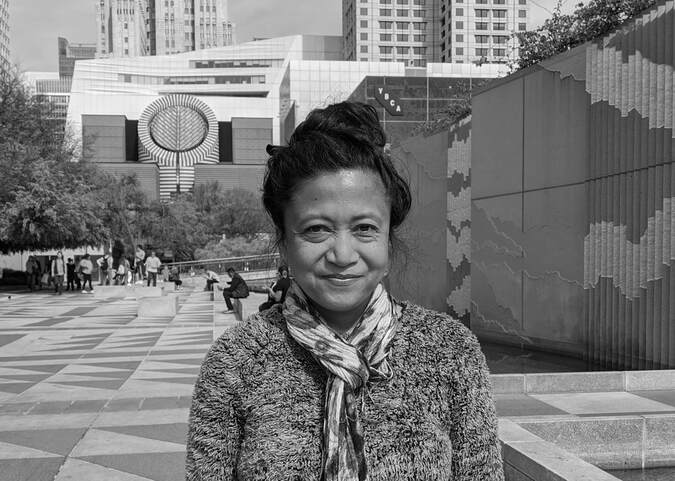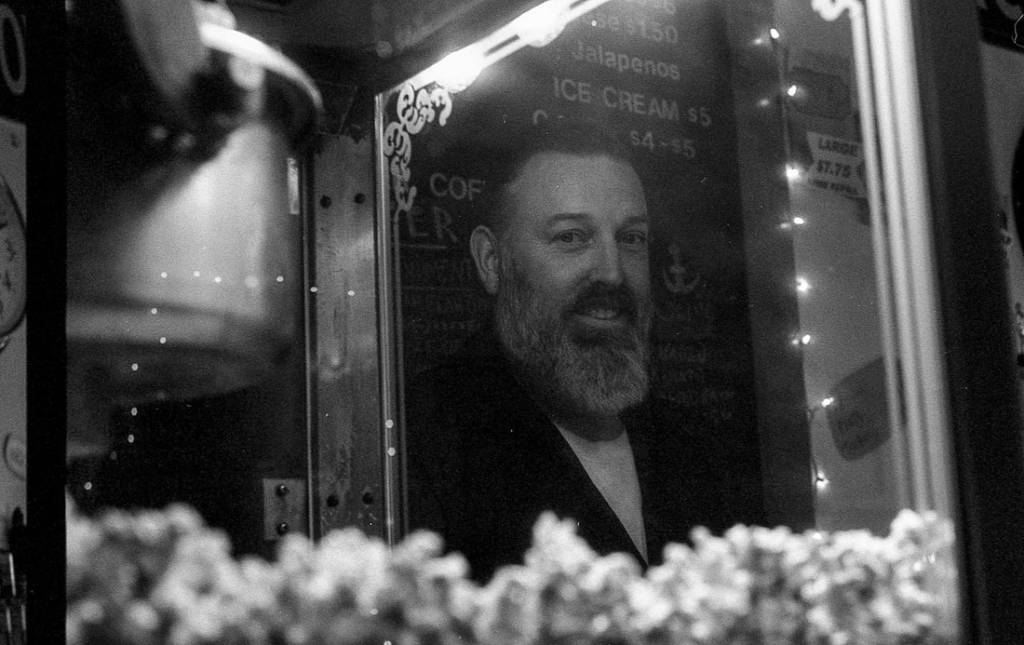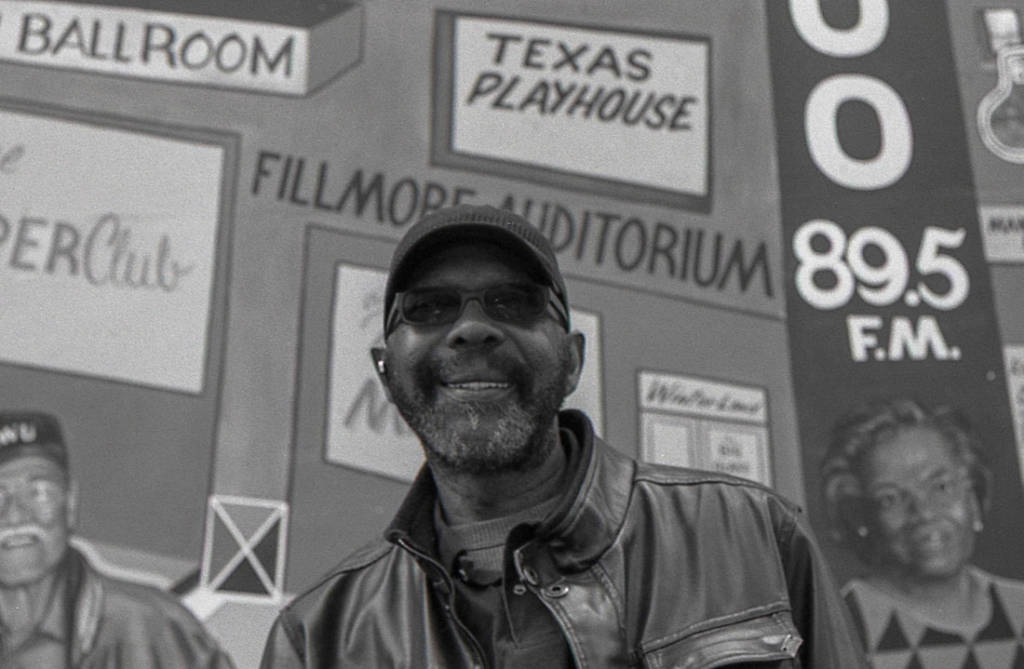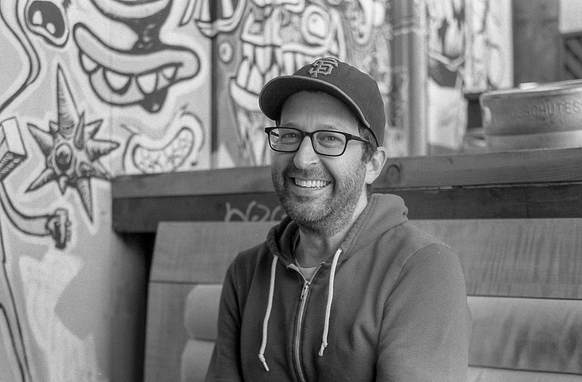“How can you get to know your neighbor, when you can’t even shake their hand right now?” Podcaster Jeff Hunt posed the question to me over the phone, but it was rhetorical—his Storied: San Francisco has been introducing people for more than two years. And currently it feels more vital than ever.
Now in its third season, the podcast highlights both vibrant characters and everyday citizens through lively interviews. With series like “San Francisco Houseboat Stories,” “The SF Giants at 60,” and “La Cocina”—which highlights that indispensable non-profit’s work with immigrant women—Storied: SF delves into some of the bigger themes of life in The City.
But most of its episodes focus on individuals who capture Hunt’s attention.”Darnay McPherson on Growing up in the Fillmore in the ’60s,” ““Kevin DeMattia’s Climb up Sutro Tower,” “Adam Bergeron and the History of the Balboa Theatre,” “Jan Yanehiro on Leaving her Home in Hawaii,” “Project Open Hand Volunteers on What It Means to Them,” and “P. Segal on the Need for Artist Housing in the City” are some examples of the range Storied covers over its dozens of episodes.

In the most recent episode, musician Aireene Espiritu “talks about her childhood in the Philippines and on the East Coast. Her mom had to work three jobs to support her and her brother, and so Aireene came west to live with family in Milpitas. She eventually found her way to San Francisco, when she enrolled at SF State. A few years later, she started going to open mics, first in the Sunset, then later at Hotel Utah. After being inspired by some of the folks she saw get up and perform, Aireene soon started to play music herself.”
“There’s no real criteria for choosing subjects,” Hunt says. “I keep a wish list of subjects, but some people just strike me out of the blue, like ‘They seem humble and interesting, I wonder—what’s their story?’ Getting to know people for the first time through an interview format like this gives things a real sense of discovery. Everybody has a fascinating story, once you start talking to them.”
Those stories sometimes reveal unexpected aspects of their subject’s history, like the time one interviewee spoke deeply about his HIV-positive status (“an incredibly emotional experience,” says Hunt) or another which delved into abusive relationships. “That one evolved into a sort of PSA, where we included resources for people who were giving us feedback and relating to what she said,” Hunt remembers.

“The interview we recently did with Adam, the owner of the Balboa Theatre, was notable because it was just as coronavirus was hitting and things were going to be shut down. So there was suddenly an element of uncertainty that he was facing while we were talking. The topic became how to help support the theatre employees, by purchasing gift certificates and merchandise. And now, of course, the theatre is closed.”
Each in-depth interview is paired with gorgeous black and white film photography of each subject by Michelle Kilfeather. The joys of looking at an actual film portrait of a subject while listening to their interview harks back to the analog pleasures of staring at a unique album cover while losing yourself in the music—and eclipses most other podcast imagery, which usually just plops a logo on the digital file.
Help us save local journalism!
Every tax-deductible donation helps us grow to cover the issues that mean the most to our community. Become a 48 Hills Hero and support the only daily progressive news source in the Bay Area.

Augmenting that nostalgic aura are the “liner notes” Hunt writes for some episodes, and the leisurely way that a few interviews sprawl over into two 30-ish minute episodes, like a double album or a quiet cafe conversation.
Hunt launched the Storied: SF podcast after co-founding the wildly popular Muni Diaries, which recorded various people telling hilarious, horrifying, or just comfortingly mundane tales of rising SF public transit. That was a much more collaborative, participatory effort, but Hunt was looking to start an in-depth, individual-based project.
His fiancée Erin Lim, who runs the fantastic podcast Bitch Talk, interviewing figures like comedian W. Kamau Bell and director Lulu Wang, inspired him to start his own podcast. Hunt taught himself the ropes of recording, editing, and putting Storied: SF online, where it can be heard on various outlets, including the Storied: SF website.

It helps that Hunt is naturally outgoing and has a convivial voice perfectly suited for podcasts—a format he characterizes as “radio programs you can listen to whenever you want.” He has no professional training but, as he puts it with a laugh, “I’ve been bullshitting successfully for 46 years. I’m a hugely social person.”
Storied: SF has hosted events like Love Letters to The City, which brought people together to share stories in real life, and showcased Kilfeather’s arresting photographs. Hunt hopes to produce more such events, which help raise modest funds to keep the podcast going, although that’s off the menu for the time being. Still, sales of Storied SF merch and donations help finance the project.
Despite the explosion of podcast popularity in recent years, Hunt has his own view. “This sounds totally heretical for a podcaster to say, but I’m actually against the general trend of turning inward, or of isolating yourself in a public space. Plugging in your headphones on a bus, for example.”
Present situation excepted, of course. Perhaps the best way to fight the isolation imposed by the current threat is to pour yourself a tall glass of something, cue up a Storied: SF podcast, and let the voices of friends and strangers flood your home with company.
You can listen to Storied: San Francisco podcasts on the website here, or on most streaming services.






